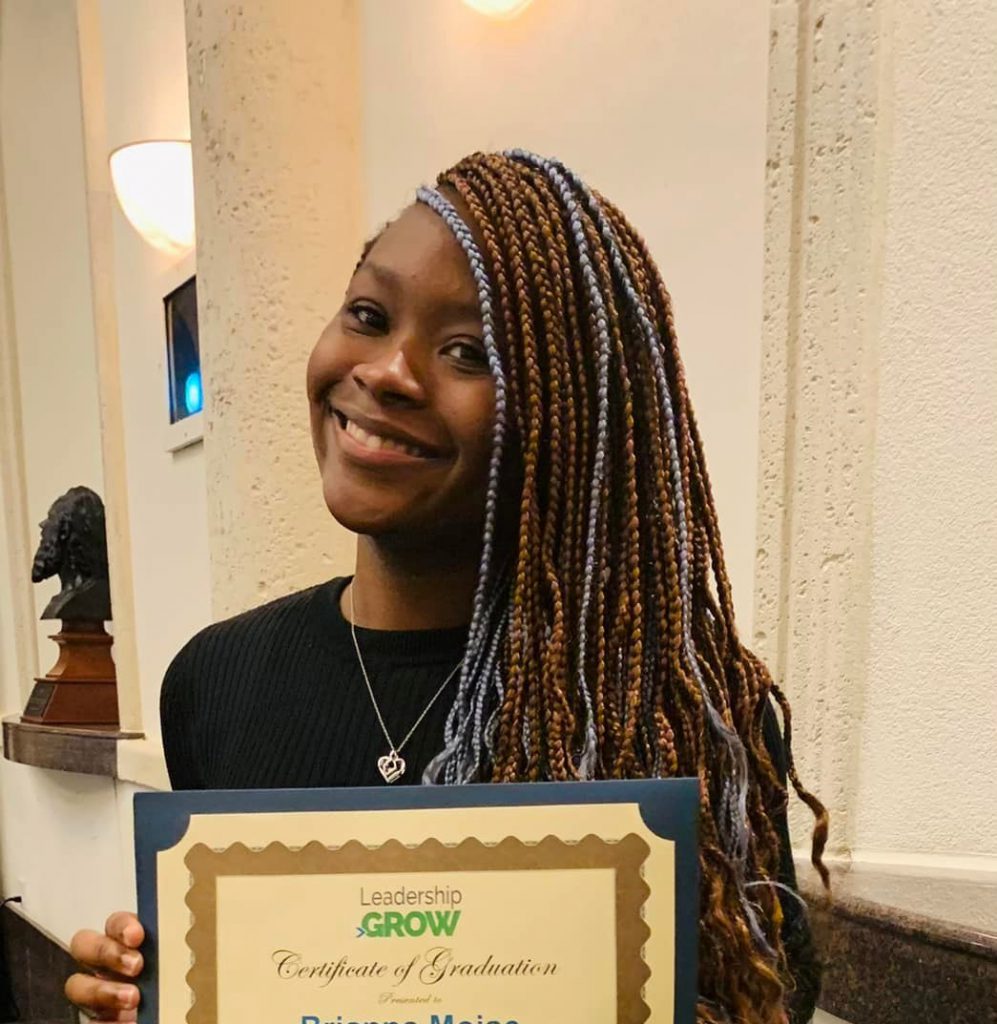When the pandemic started, Brianna began to see her world unravel — and with it, her mental health.
Brianna loved going to school to be with friends. Although she didn’t love schoolwork, her social life helped her thrive. With schools closing due to the pandemic and more time spent at home, Brianna’s relationships began to suffer. Formerly extroverted Brianna now felt shy and reclusive.

At her new school, a counselor connected her with Pace. When she first entered Pace, she was nervous but found that the size of the classrooms and hours of the program fit her needs. Through wrap-around, personalized behavioral health support, Brianna has taken control of her mental health journey and developed healthy coping mechanisms. She actively engages with Pace programs designed to provide support, such as TOPs — a teen outreach program — Girls Leadership Council, and has taken up running and drawing as hobbies.
Today, Brianna is thriving as a Pace girl in Palm Beach.
As we observe Mental Health Awareness Month this May, stories like Brianna’s — and the untold millions struggling with similar issues amid a growing youth mental health crisis — should be our call to action to take much-needed steps to support our girls and young women.
“Mental health is the center of gravity,” said Heather Blaise, a Pace Reach program manager in Palm Beach. “Finding the support to value yourself and know yourself is foundational to living to your full potential.”
Heather, who shared her perspective sitting next to Brianna in a Palm Beach classroom, sees firsthand the value that a community-first approach to mental health support can deliver.
“The Pace Reach Program is designed to be community based — to go outside of the Pace day programs and meet girls where they’re at: in their schools, in their homes and in their communities,” she said. “Our goal is to ensure that things like transportation and finances don’t become a barrier to providing the behavioral health services that girls need.”
Barriers to access is a significant consideration in improving mental health care. Ripple effects of the pandemic including economic troubles, isolation and health problems are compounding issues that girls were already struggling with while navigating their social lives, their education and changes in their bodies. When these challenges are coupled with barriers to access, girls are left with limited places to turn.
Complex challenges such as these must be met with a multi-faceted approach to support, which is why Pace programs are designed to meet girls where they are both physically and developmentally.
In addition to programs like Reach, Pace employs a support system throughout our holistic approach that addresses three key pillars, including:
● Gender-responsive: We understand girls’ unique perspectives and tailor our approach to their lived experiences.
● Strengths-based: We talk with girls about what they love and help them advance those skills.
● Trauma-informed: We know that traumatic experiences can be at the heart of behavioral issues. Approaching a girls’ lived experience with empathy and compassion is critical to healing.
“People think there is only one way to address mental health issues,” said Brianna, “but when they become more educated on the topic, they can begin to understand mental health on a deeper level.”
Brianna’s words reflect our beliefs at Pace: positive mental health outcomes begin with communication, education and support. Every day, our exceptional team of counselors and therapists work to create safe, inclusive spaces and help girls realize and harness their power. Sharing this ethos is key to helping girls across the country navigate the ongoing mental health crisis.
As Brianna and Heather sat together in the classroom discussing their unique perspectives on mental health, one thing is clear: there is no substitute for genuine connection and care.
If you have a girl or young woman in your life, Mental Health Awareness Month is a great time to check-in with her. Sometimes just asking someone how she is doing can be an important step to prevention or to beginning a healing journey. If you know someone who may be a good fit for our programs, click here to learn more about Pace.

